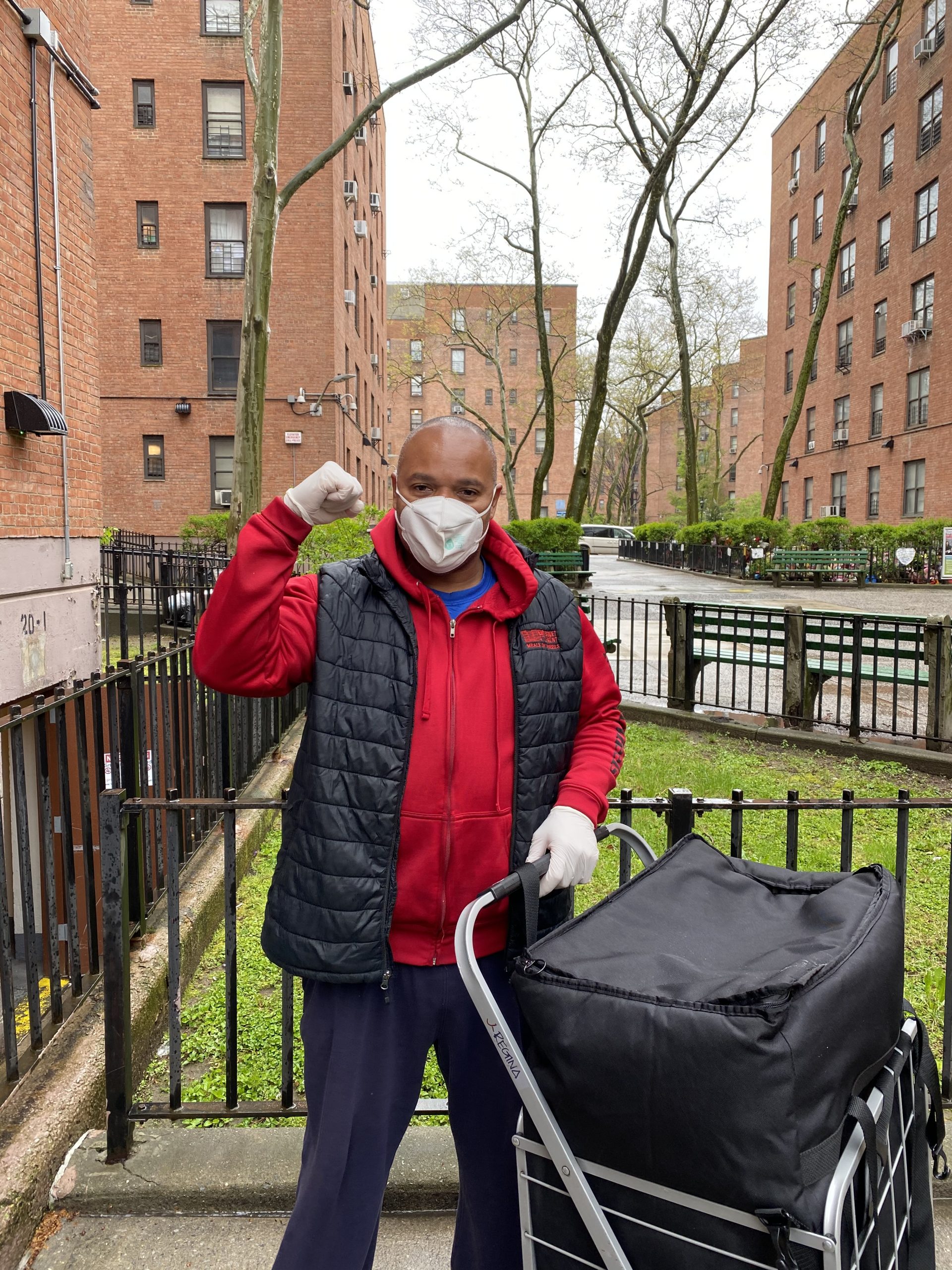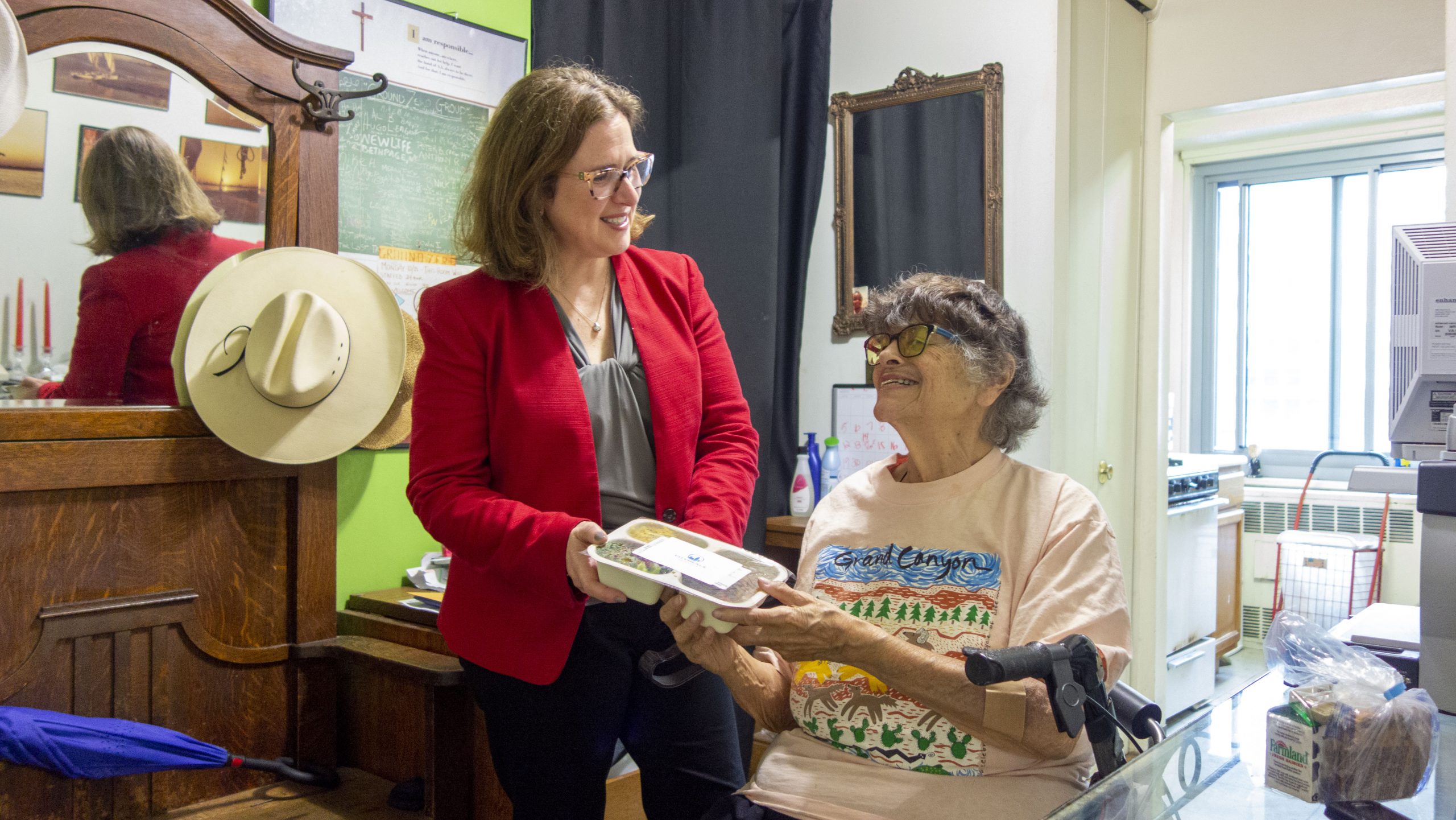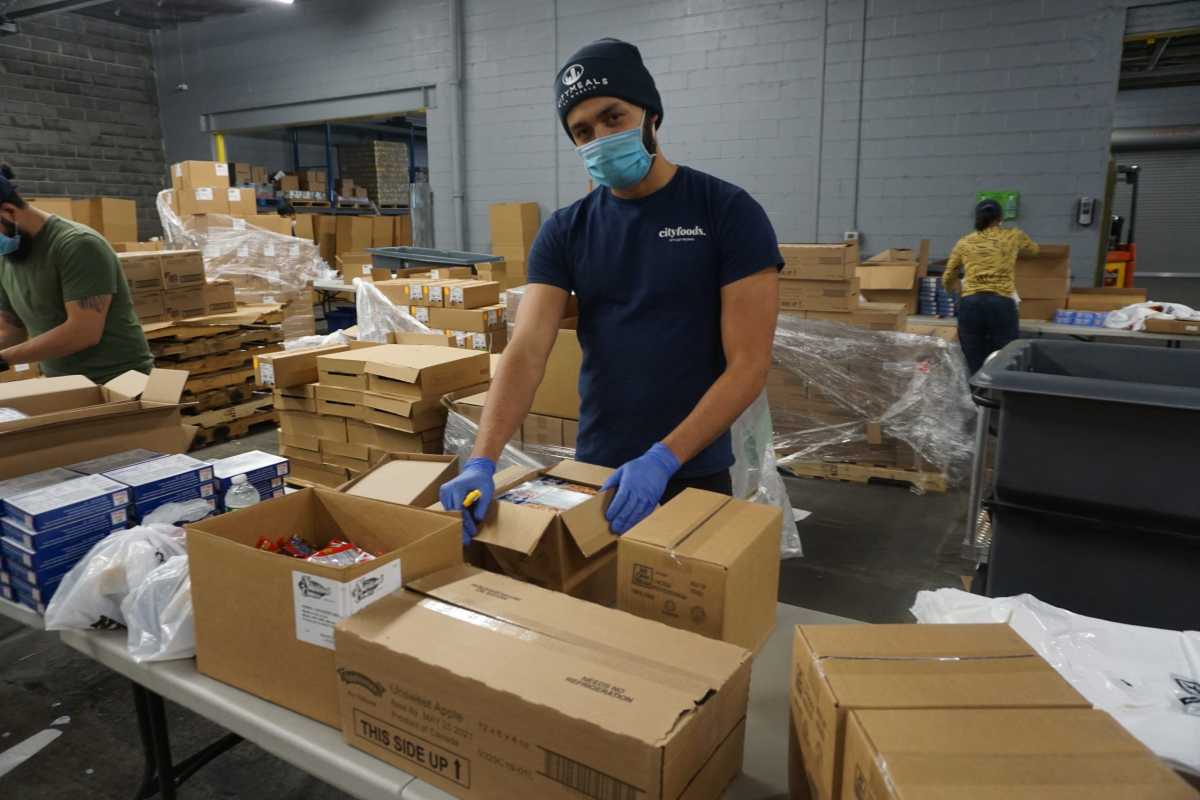Retired nurse Dorothy Driscoll cared for dying patients at the start of the AIDS crisis in the 1980s and struggled with life at Ground Zero following the Sept. 11, 2001 terrorist attacks. Nothing, however, compares to the tragic consequences of COVID-19.
The East Side resident, 80, sympathizes with the frontline workers at hospitals across New York City who’ve worked hard to save lives throughout the pandemic — putting their own health in jeopardy in the process. Driscoll, however, can’t assist them now; she’s afflicted by macular degeneration, congestive heart failure and other health issues that make her among the most vulnerable people to the virus.
So during the pandemic, Driscoll’s been stuck at home like many New Yorkers and reliant upon delivery of needed items. Citymeals on Wheels has been serving Driscoll for years now, and she’s been more reliant upon them than ever before to keep food on her table.
“Citymeals on Wheels just saves me,” she told amNewYork Metro in an interview. “I get seven meals a week. They come regularly. It used to be that I would see the delivery person, I’d knock and open the door. But it’s not safe to do that anymore.”
The delivery workers leave the food just outside her door in a contact-free delivery that many other homebound New Yorkers now receive — along with tens of thousands of other residents suffering from economic despair during the financial crisis resulting from the pandemic.
Like many other nonprofit food banks across New York City, Citymeals on Wheels has seen a tremendous surge of clients in need of help, according to Beth Shapiro, the program’s executive director.
Over the last eight weeks alone, Citymeals has been working around the clock to prepare 450,000 shelf-stable emergency meals. Already more than 370,000 of them have been delivered to older New Yorkers across the city.

Based in Bronx’s Hunts Point, Citymeals has vastly increased its operations to accommodate the need, Shapiro said. They’ve had to lease nearby warehouse space for storage.
“When this first started, even before we had procured more food and filled our warehouse, we added a second team, we doubled our staff at the emergency meal distribution center,” Shapiro told amNewYork Metro in an interview.
But as the staff has grown to meet the need, Citymeals has been spending vast amounts of money to keep going — more than $4 million as of May 13, according to Shapiro. At the same time, the nonprofit has lost an estimated $1.5 million in revenue from the cancellation or postponement of fundraising events.
Gathering food for their clients hasn’t been a problem, Shapiro said — but the costs of buying food have jumped.
“We have been incredibly lucky in the procurement area of getting food. We have long-standing relationships with many partners that we work with,” she remarked. “They’ve been able to source or deliver food on an incredibly timely basis. It’s costing us more, and that is a concern — but it’s also costing them (the vendors) more.”
Citymeals on Wheels’ annual budget is about $21 million, and Shapiro noted it receives about 10% of its funding from the city. Most of the rest of its funding comes through donations from the public.
Though city funding represents just a fraction of its resources, Shapiro acknowledged that a loss of part of that funding would negatively impact their operations. So the nonprofit isn’t wasting time looking to make up the difference of that potential loss.
“We are reaching out as broadly as we can from bottom to top — to everyday New Yorkers who can donate $8 to cover the cost of a meal, to those who can do $800 and more,” she said. “I think the real challenge will be the second half of this year and the next fiscal year. That’s where the unknown is. I’m not sure how long our donors will continue to support us on the same level.”
Yet Shapiro is working to reassure as many meal recipients as possible that, come what may, the nonprofit will find a way to keep on serving them.
“It’s scary for people to be so worried, and that trickles down to the meal recipients themselves who call asking us to see if they’ll still get their meals,” she said. “I think everyone can now relate to the fright that many of our meal recipients receive. We’re all isolated now, and that’s what our meal recipients feel on a regular basis.”

Before the crisis hit, Citymeals delivery workers served not only to deliver food to clients, but also to make sure they’re in good health. For Driscoll, that particularly aspect literally saved her life.
Two years ago, Driscoll wound up passing out inside her home; she doesn’t remember what happened, but as it turned out, she had been unconscious for about two days.
Driscoll received help after a Citymeals worker knocked on her door to deliver her meal, and when she didn’t respond, the worker alerted a neighbor. They would find her unconscious on the floor and called paramedics for help.
“If the worker hadn’t found me, I would’ve been dead,” Driscoll said. “He did save my life just by doing the things he was supposed to do.”
To learn more about Citymeals on Wheels, visit their website, citymeals.org.


































